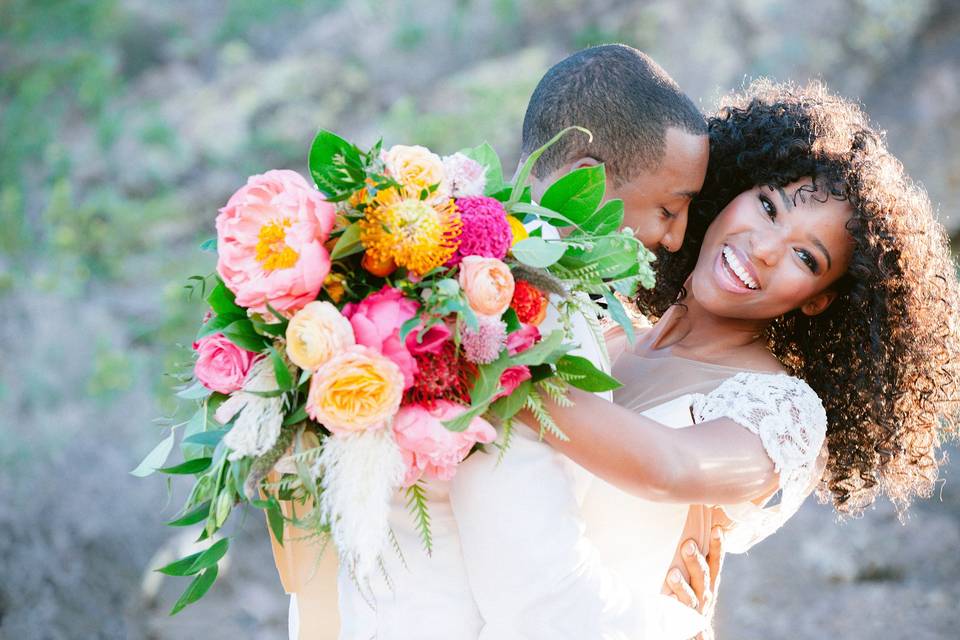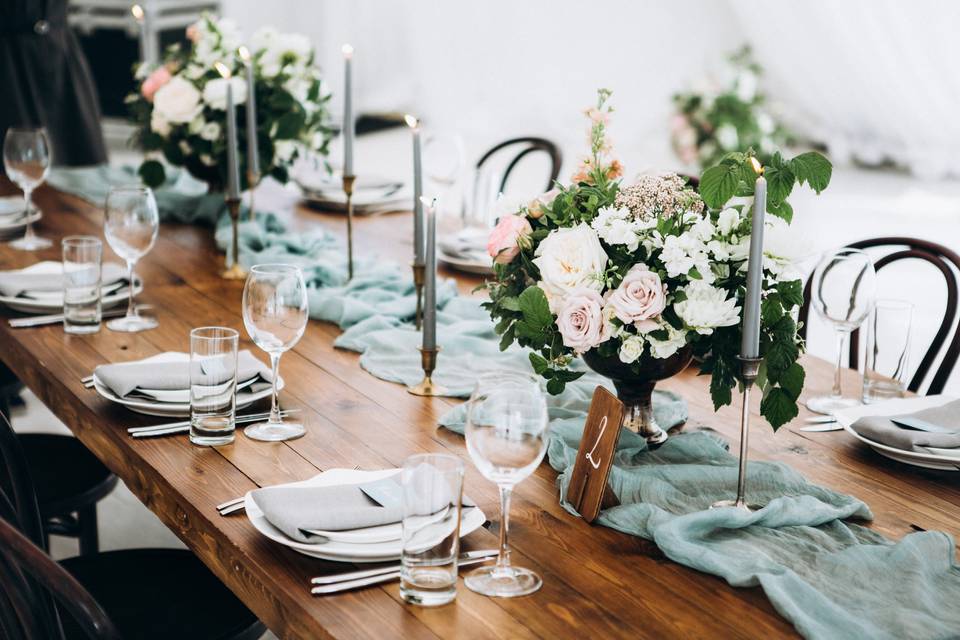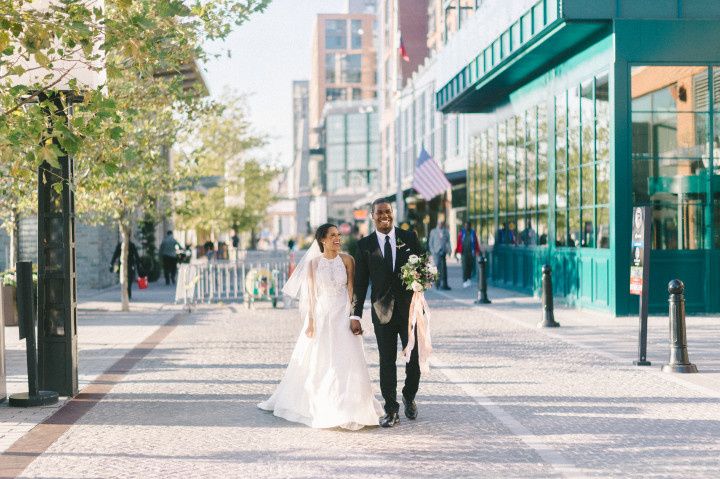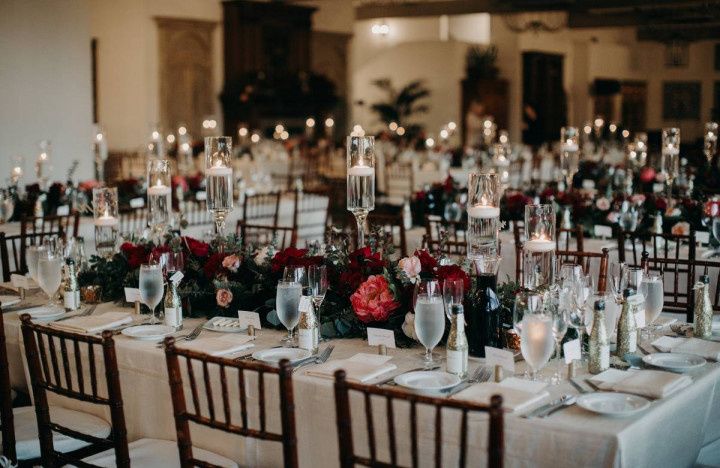This is How Much a Wedding Actually Costs
Yes, COVID had an impact on 2020’s average cost of a wedding—but it’s likely a very short-lived change.

One of the first questions you’ll likely ask when starting to plan your wedding is: Okay, how much does a wedding cost? It’s a good question, with a somewhat complicated answer. It turns out that, like most aspects of wedding planning in 2020, the cost of a wedding was also greatly impacted by the COVID pandemic.
Every year, the WeddingWire Newlywed Report surveys thousands of couples to find the average cost of a wedding. Pre-COVID, the average cost of a ceremony and reception was holding steady at around $28,000. However, because of the pandemic, the national average cost of a wedding dropped to $19,000 in 2020. This doesn’t mean that weddings somehow became less expensive—couples were throwing smaller events or postponing their weddings all together to follow safety regulations, so they may have spent less amid these changes. And already, we’re seeing the average wedding cost quickly bounce back to pre-COVID numbers. According to new data, couples who are hosting a reception in 2021 report that their budget is approximately $22,500, which is in line with the past reception-only spend of $23,000 in 2019.
Remember that these numbers are just an average, and wedding cost can vary widely depending on where you live, the size of your event, and more. Here’s a deep dive into how much a wedding actually costs so you can start creating your budget.
Location plays a major role in the cost of a wedding.
Perhaps the biggest factor in determining how much you’ll spend on your wedding is where the event will take place. A wedding in a major city, like New York or San Francisco, will cost more than one taking place in a small town (check out the WeddingWire Cost Guide for more information on how much weddings cost in your area). And staying close to home can also help you save. According to the 2019 Newlywed Report (which is more in line with what we’ll likely see in 2021 and beyond), the average hometown wedding costs $27,000, while the average destination wedding costs $32,000. Good to know if you’re deciding where to host your big day!
Couples are spending the most on venue and food.
After figuring out how much a wedding costs near you, you can start to divide up your budget to reflect the different vendors you’ll need to hire. Turns out that you’ll likely spend the most on your venue and catering. On average (based on 2019 data), couples spend $10,500 on renting a venue, and $70 per person on catering. This really explains why the mantra “the more guests you invite, the more money you’ll spend” is so true. A wedding of 50 guests can expect to pay about $3,500 on catering, while a wedding with 300 guests may pay over $20,000 on food alone!
Couples pay for roughly half of the wedding themselves.
One of the most important parts of planning your wedding budget is figuring out who’s paying. These days, couples are sharing the costs with their parents. The 2019 Newlywed Report found that couples paid for 47 percent of their wedding, while their parents footed 52 percent of the bill. Nearly 60 percent of parents agree to pay for certain items (the venue, food, and music, for example), while about one-third write a check for the couple to spend at their discretion. When it comes to wedding planning, money equals control. So if your parents are contributing to your big day, talk to them about how much they want to be involved in the decision-making.
Millennials tend to spend more on their wedding.
The average millennial (those born between 1981 and 1996) tends to spend more than older Gen Xers (born between 1965 and 1980) on a wedding. In fact, in 2019, the average cost of a millennial wedding is $31,000, while a Gen X couple only spends an average of $21,000. Why this disparity? Well, millennials tend to invite more people and include such amenities as an open bar and late-night snacks than their older counterparts.
More than half of couples increase their initial budget during the planning process.
While over 80 percent of couples are creating a budget as one of the first steps of wedding planning, more than half are increasing their initial budget for a variety of reasons. Couples are finding “must have” items during planning or realizing their initial budget was set lower than reality. That’s why it’s a good idea to give yourself some wiggle room so you don’t end up spending more than you can afford.





